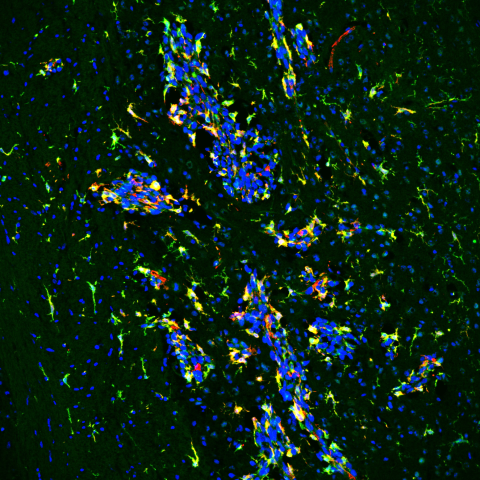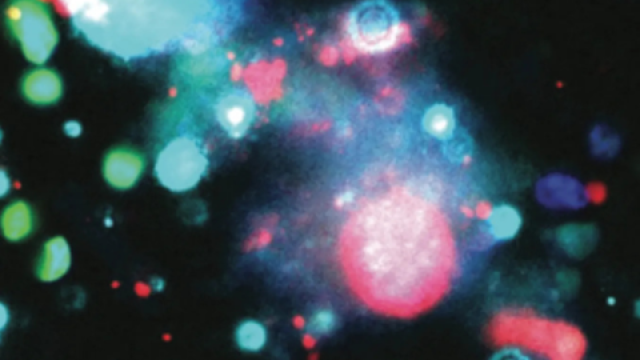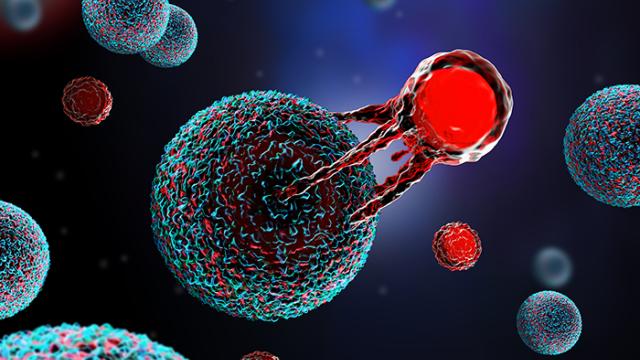
Fluorescent image showing the protein CSF-1R (green), microglia (red), and cell nuclei (blue) in a breast cancer brain metastasis model. Microglia cells near and inside the brain tumors are expressing the CSF-1R protein (yellow), indicating that CSF-1R–positive microglia are present within the tumor microenvironment, where they could contribute to tumor growth.
Image credit: Wei Zhang, Ph.D.
Triple-negative breast cancer is the most aggressive form of the disease. A frequent and devastating complication is when it spreads to the brain. Treatment becomes extremely challenging because of the blood-brain barrier, a natural shield that blocks many drugs from getting through. This means limited options and poor outcomes for patients.
Researchers at the National Institutes of Health Center for Cancer Research (CCR) are exploring a potential new approach. Their study focused on microglia, which are the brain’s innate immune cells. They typically act as the brain’s defenders, but in brain metastases, can sometimes be “tricked” into helping the tumor grow.
These cells depend on the colony stimulating factor-1 receptor (CSF-1R) pathway to survive and function. To target this vulnerability, the scientists tested an experimental drug that blocks CSF-1R. In laboratory models of triple-negative breast cancer brain metastases, the treatment reduced both the number of microglia and the size and number of brain tumors.
“This is exciting because brain metastases occur in up to half of patients with metastatic triple-negative breast cancer, and there are few effective treatments,” the researchers said.
The findings suggest that CSF-1R inhibitors could be a promising therapy, either alone or combined with other treatments. Future clinical trials will be needed to confirm these results.
CCR’s decades-long investment in developing specialized models for breast cancer brain metastases made this work possible, providing a foundation for new strategies against one of cancer’s toughest challenges.
Citation
Zhang, W., Rahman, S., Wu, A.M.L. et al. A CSF-1R inhibitor both prevents and treats triple-negative breast cancer brain metastases in hematogenous preclinical models. Clin Exp Metastasis 42, 45 (2025). https://doi.org/10.1007/s10585-025-10366-x
Information submitted and story approved by:
Patricia Steeg, Ph.D., NIH Scientist Emeritus, Wei Zhang, Ph.D., Staff Scientist, and Stanley Lipkowitz, M.D., Ph.D., Branch Chief, Women’s Malignancies Branch
Edited with assistance from artificial intelligence.


